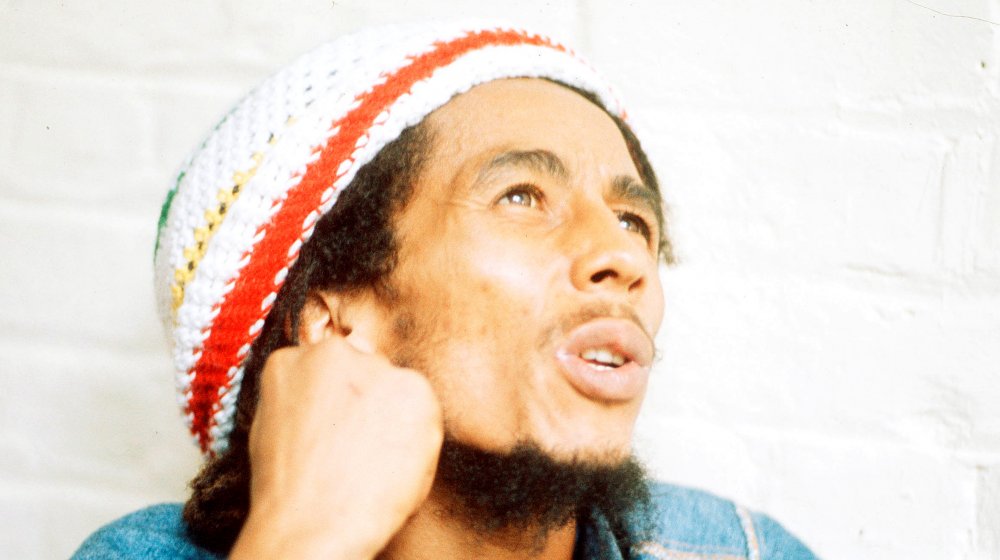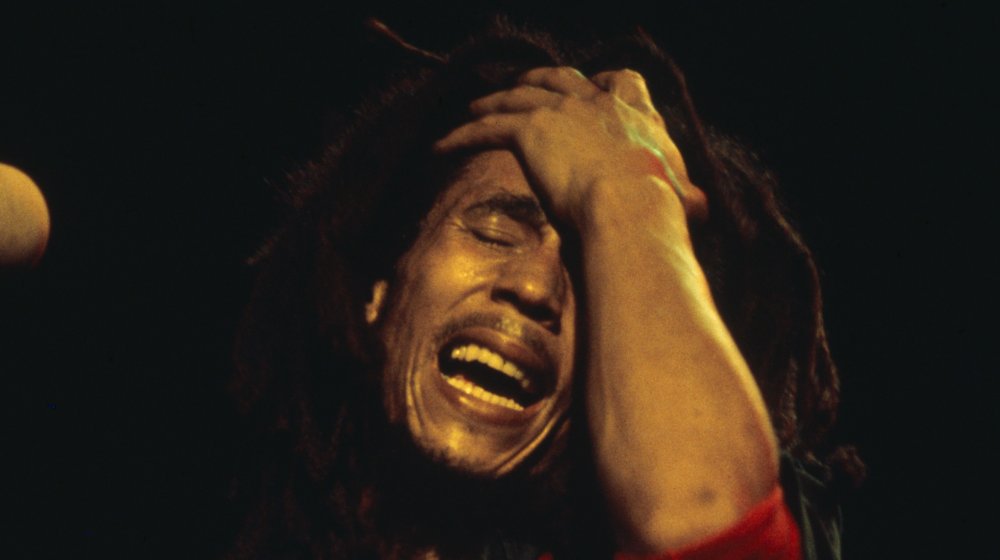The Hidden Meaning Of Bob Marley's I Shot The Sheriff
Bob Marley and the Wailers' 1973 classic "I Shot the Sheriff" seems plenty straightforward. Marley, within the context of the song, finds it prudent, even necessary, to shoot the sheriff. In a moment of quiet pause, however, he refuses to give in to his baser instincts, and refrains from shooting the deputy. As a result, reggae music ensues.
But could "I Shot the Sheriff" have a deeper meaning? Could it count itself among numbers like "London Calling" by The Clash and Semiconic's "Closing Time?" The musical equivalent to a bookcase concealing a hidden door, leading to messages hidden just below the surface.
Not sure. Maybe. Esther Anderson sure thinks so, and she would know a thing or two considering that she dated Marley for a spell. She also went out with Marlon Brando for a few years. Some girls have all the luck.
In any case, Esther, who claims to have helped co-write "I Shot the Sheriff," claims that there's another layer to the song, and it's not exactly in keeping with the chill vibes associated with breezy reggae and murdering law enforcement officials.
Never meet your heroes
One particular section of the lyrics gives the game away, according to Esther Anderson's documentary Bob Marley: The Making of a Legend. They go as follows:
"Sheriff John Brown always hated me,
For what, I don't know:
Every time I plant a seed,
He said kill it before it grow"
According to Anderson, this wasn't just colorful lyricism. It was Marley taking a shot at her use of contraception. Specifically, he found her use of birth control pills offensive to the point of blasphemy. Per the Miami New Times: "Ms. Anderson was on birth control pills, and Mr. Marley thought the pills were sacrilege. He wanted her to have his baby. He believed their love was strong and it was sin to kill his seed. The doctor who prescribed those baby-killing pills became the sheriff."
If this is true, it makes sense that Marley would swap out a sheriff for a doctor. "I shot the doctor/but I did not shoot the EMT" fits the metre alright, but the overall message might not have found an audience with Americans music fans without that quasi-Old West imagery. Also, did you know that "One Love" is all about how there are some really solid arguments for maintaining the gender wage gap?
We're kidding. Probably.

